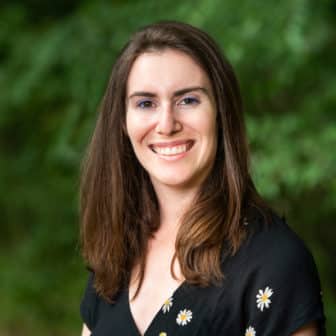By Jennifer Anolik, Fellowship Director

Many teens have watched the war in Ukraine unfold on social media—on Instagram, TikTok, and Reddit. They have seen remnants of razed buildings, Ukrainian refugees crowding onto trains, men hugging their families before leaving to fight for their country.
This war is personal for many Jewish American teens, especially those whose families once lived in Ukraine or Russia. In early March, they listened to Volodymyr Zelensky, the Jewish president of Ukraine say, “What is the point of saying ‘never again’ for 80 years if the world stays silent when a bomb drops on the same site of Babi Yar [where more than 33,000 Jews were murdered less than a century ago]?”
And when Holocaust survivor, Boris Romanchenko (z’l) was killed in a Russian airstrike in Kharkiv, teens saw pictures of him accompanied by “When we say ‘never again,’ we mean this.”
What is happening in Ukraine is not the Holocaust. Nothing can compare to the Holocaust. And yet the phrase “never again” has recently appeared again and again across the internet. As violence and suffering in Ukraine continues, teens are afraid, confused, and trying to figure out what they can do— what does “never again” mean in practice for me?
As a third-generation Holocaust survivor, I find it encouraging to see teens and adults engaging with the refrain “never again”—and I can relate. My grandmother, Erna Anolik (z’’l) grew up in Uzhgorod, a city in modern-day Ukraine, near the Slovakian border (once Czechoslovakia) before she and her family were deported to Auschwitz. Because of the courage of a German citizen who risked his life to hide my grandmother and her sister in his home, she survived.
I have been wondering recently, how do we as Jewish adults and educators pass down the promise of “never again” to the next generations?
One major part of ensuring “never again” is hearing and telling the stories of Holocaust survivors. We tell these stories not only as a way of ensuring nothing like the Holocaust happens again, but also in my grandmother’s words, “to help young people realize that no matter how risky, they must always try and help people facing discrimination.”
As Jews we know how important stories are—especially with Passover approaching. Maggid is the part of the Passover seder when we retell how the Israelites escaped from slavery in Egypt.
The Mishnah tells us that in every generation a person must view themselves as though they personally left Egypt. This directive feels especially important this year—when we’re seeing the largest number of refugees in Europe since World War II—refugees whose travels are narrated in such detail on social media and by journalists. And at the same time, there will soon be no more Holocaust survivors to tell their stories. It will become the responsibility of the next generations to carry the narratives forward.
I invite you to explore the power of narratives this year by using Moving Traditions 2022 Passover Supplement, to make sure that young people are part of the conversation.
Stories can inspire action, draw a community together, build empathy across difference. But are they enough by themselves? This is another question I’ll be wrestling with at the seder this year. I think we also need action, coalition building, policy change, tzedakah. We need to deeply connect to Jewish tradition and pride while also creating stronger, safer, and more inclusive Jewish communities. And we need to lift up the voices of young people in the process.
At the end of Maggid, we sing Hallel, a psalm expressing gratitude and hope. It reminds us of the importance of celebration even during a time of grief and suffering. I believe one of our greatest sources of hope exists within our youngest generation. At this year’s Seder and in the year to come, invite the young people in your life to raise their voices in story and song.
Click here for Moving Traditions’ 2022 Seder Supplement on how to discuss “Never again” with the Jewish youth at your table.
